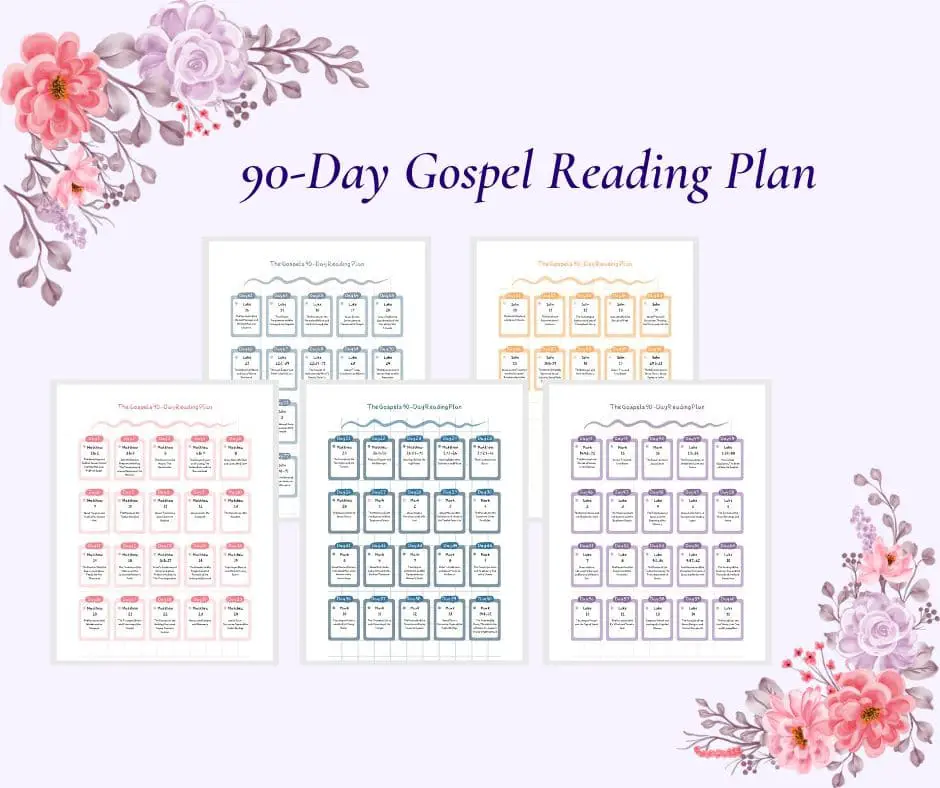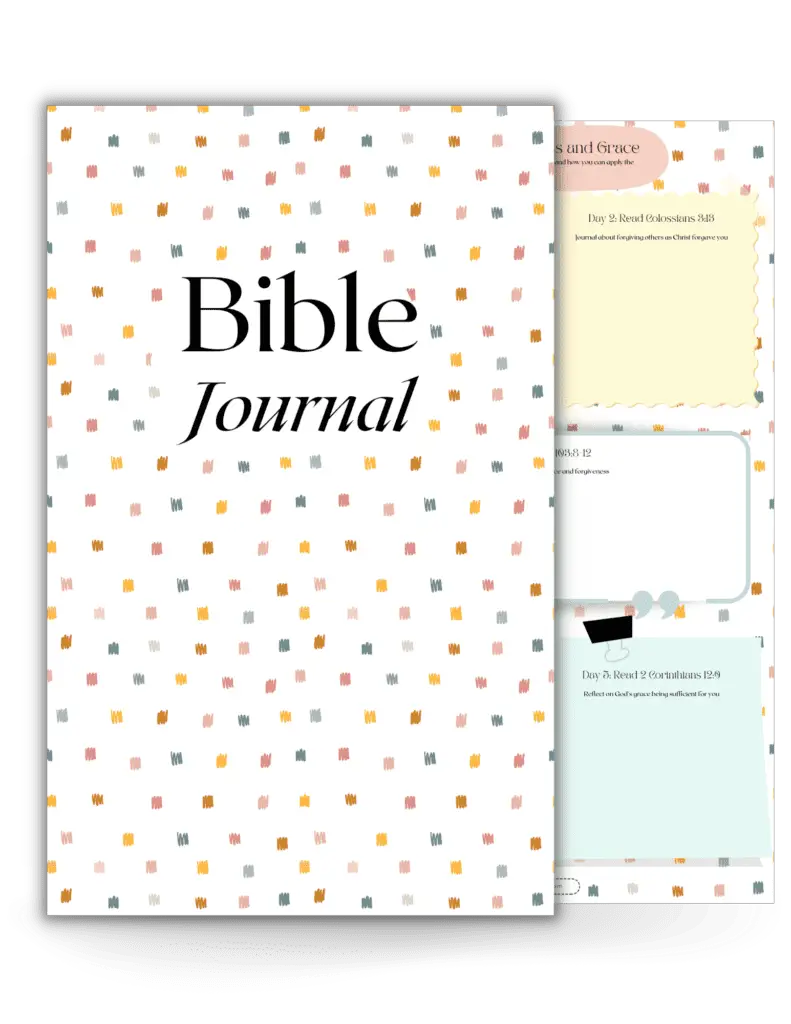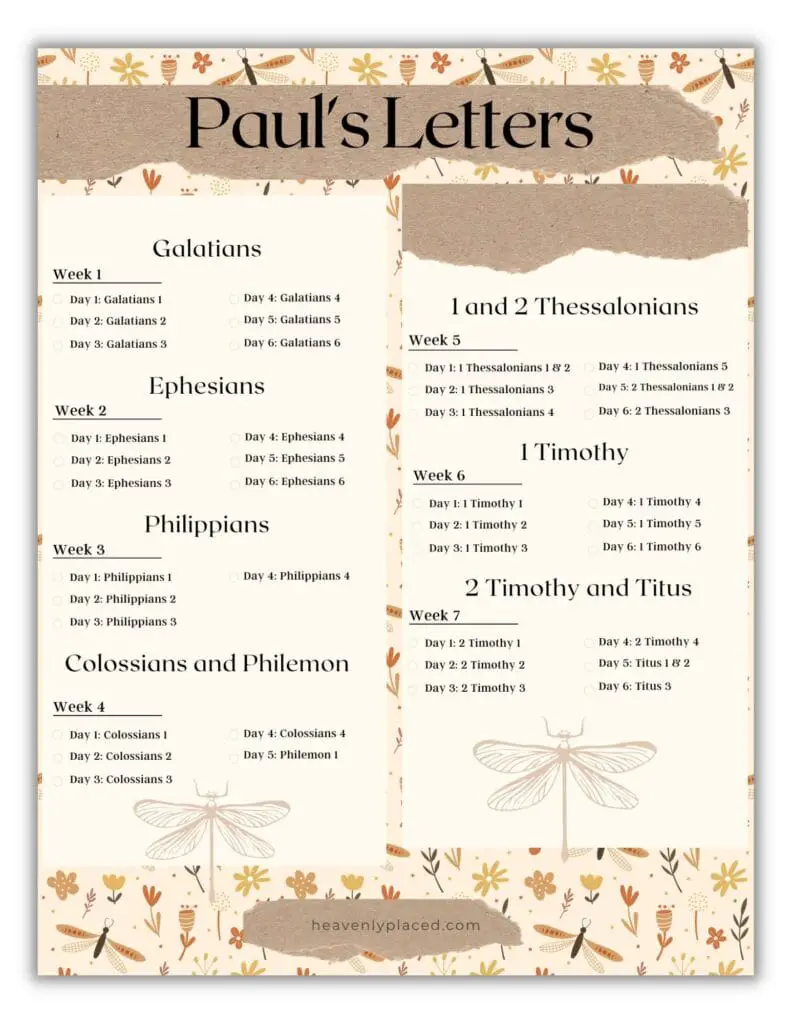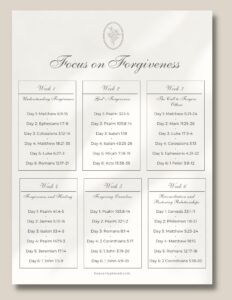7 Engaging Strategies When Bible Time Feels Boring
This article will explore seven strategies to make Bible time more exciting, insightful, and enjoyable. Whether you’re a seasoned believer or just starting, these strategies will help you engage with the Scriptures on a deeper level.
Reading the entire Bible can sometimes feel dry and boring. Not because the Word of God is not interesting, but reading ancient text in the Old Testament can be a bit overwhelming. The Old Testament is full of the history of God’s chosen people and how He set them apart from all other nations to raise up a people who would be free to worship Him.
As the Old Testament languishes on about the historical facts of Israel, all the conquests, all their rebellion, and all their laws, my eyes tend to glaze over.
And Leviticus is such a difficult book for me. When Moses discusses treatment for leprosy, blood issues, boils, and bodily discharge. Yuk! I can’t handle it, I have a hard time reading it, so I usually skip it.

But I love the Bible! And I want the knowledge that it contains: human history, poems, songs, proverbs, and literature. The Holy Book of God is breathed by the Holy Spirit to human author who wrote for the glory of God and the benefit of humankind.
All Scripture is breathed out by God and profitable for teaching, for reproof, for correction, and for training in righteousness, (2 Timothy 3:16, ESV)
7 Engaging Strategies When Bible Time Feels Boring
I like spending my devotional time in the New Testament. There are so many good things to read, like the gospels, written letters, and the historical books there. But we know the Bible is important, and our Christian walk depends on every passage of Scripture.
If you find the Bible boring at times, like I do, these seven strategies will help you revitalize your Bible reading time so you can begin to enjoy your time in God’s words.
I’ve also included some practical tips and reading plans that will help you during your quiet time in the Scriptures. Pick a plan, and I bet you’ll be eager to get started every day!
This post may contain affiliate links. Read the full disclosure here.
Thematic Bible Studies
The first plan I use is a thematic Bible study. Simple enough, choose a theme and study it. Themes can be like a Bible character, an aspect of God’s nature, or the life of Christ. The important truths you discover in this plan can be life-changing. Choosing one thing to study deeply instead of trying to cover everything at once helps us understand the Bible in a deeper sense.
You can choose something that interests you, like a particular character or an idea, such as faith. You can gain a better understanding by studying related verses from different parts of the Bible.
Dig even deeper by using a biblical book to look closer at the cultural background or seek out Bible teachers online to better understand the theme.
Thematic Bible studies are also helpful when you need guidance in a particular area of your life.
Select a theme that relates to your situation and learn valuable lessons from it. Find people in the Bible who are going through similar situations, or find Bible verses that will help you study that one idea.
Here’s a Bible reading plan on forgiveness that is thematic in nature:
Remember, the goal is to dive deep into the Bible and discover its wisdom in a way that speaks to you personally.
Bible Reading with a Friend
Who doesn’t love a party? In today’s world, you can have Bible time with the girlfriend next door or a friend that lives halfway around the world.
By using social media to connect, there’s not much we cannot do here. Use Zoom, face-time, Facebook Live, or call each other and read the Bible together. Wouldn’t that be fun!
Having a friend or a small group to read with opens up opportunities for discussion. It can make the experience more fun and helpful. When you read together, you can talk about what you’ve learned and see things from different angles.
Discussing spiritual things with others helps you understand them better.
I love talking to my friends about something I’ve read or have a question about. They usually give me sage advice that I hadn’t even considered.
Iron sharpens iron, and one man sharpens another. Proverbs 27:17 (ESV)
Here’s a Bible reading challenge that takes you through all four Gospels in 90 days:
90-Day Gospel Reading Challenge

Journaling Through Scripture
If you like keeping a diary or you like to doodle, journaling through the Scriptures is a great way to engage God’s Word in your everyday activities. It becomes very personal when you open your journal and begin to write down your thoughts, questions, reflections, and prayers.
I have lots of notebooks with lots of notes that I want to make into Bible studies and lessons. But I also have lots of journals that I keep solely between me and God.
Through journaling, the words of the Bible come alive in a whole new way. As you write, you dive into the stories, teachings, and parables and gain new insights and revelations about God’s Word and yourself.
As you copy down verses or list phrases or words to explore at a later time, you begin an intimate conversation with God, where you can share your deepest thoughts and emotions, knowing that our Father hears and understands.
If you haven’t tried journaling while doing your daily Bible reading, I encourage you to give it a try.
Find a beautiful journal that resonates with you (there are so many), and start writing as you read.
You may discover that this simple practice transforms your Bible reading from boring to bountiful, like mine. And you’ll be surprised how God uses this practice to speak to you.
For the word of God is living and active, sharper than any two-edged sword, piercing to the division of soul and of spirit, of joints and of marrow, and discerning the thoughts and intentions of the heart. Hebrews 4:12 (ESV)
Want to try your hand at journaling through the Scripture? Check out these free printable journal pages:

Memorization Challenge
When you memorize parts of the Bible, you’re not just reading the words on the page. You’re actually learning and storing those precious words in your mind. It might take some effort and practice, but it’s worth it.
You’ll find that as you memorize, you’ll start to feel a deeper connection to the Bible and to God.
I can quote so many verses! The problem is that I can’t always tell you where they are, and I’m not exactly sure I’m quoting them correctly. But I still have memorized some that I have committed to memory long ago.
These portions of Scripture have stuck with me because I practiced them over and over: 1 John Chapter 1, Psalm 1, 1 Corinthians 13, and a few more.
A great way to make Bible time less boring and more exciting is by challenging yourself to memorize important parts of Scripture. It might sound hard, but it has great benefits. Not only does it help improve your memory skills, but it also lets you keep God’s Word right in your heart.
In those challenging moments when you feel down or lost, the verses you’ve memorized can come to the rescue. They can bring you comfort and remind you of God’s love and promises.
I’m sure you know one verse without even studying it.
For God so loved the world, that he gave his only Son, that whoever believes in him should not perish but have eternal life. John 3:16
The “Book-a-Week” Plan
The Bible is one BIG book consisting of 66 other books. Different Books of the Bible contain history books, songs and poetry, wise writings, parables, letters, and prophecies.
Reading a book a week is a great idea if this is your first time to commit to a reading plan.
Choose a book of the Bible each week and dedicate yourself to reading it in its entirety. This plan provides a deep dive into individual books, enabling you to grasp their unique messages and teachings.
You may not want to start with Isaiah or Revelation, but many books contain only 1-6 chapters.
Here is a reading plan that contains a series of short letters written by the Apostle Paul:
Book-a-Week Reading Plan: Paul’s Letters

Comparative Study of Gospel Accounts
Try reading the Gospels one by one, paying attention to the different perspectives of each of the accounts of the same events. It’s fascinating to see how each Gospel writer presents the stories with their own insights and emphasis.
For example, Matthew highlights Jesus as the long-awaited Messiah, while Mark, known for his vivid and concise style, portrays Jesus as God’s powerful and compassionate Son. As you compare the Gospels, you’ll notice that some stories appear in multiple accounts, while others are only mentioned in one. This can deepen your understanding of the events and reveal the richness of Jesus’ life and teachings. You might also discover how each writer’s background and audience influenced the way they presented Jesus’ message.
Take it slowly and reflect on what you read. Don’t rush through the pages. Instead, pause and ponder the meaning behind Jesus’ words and actions. You can ask yourself questions like:
- What does this story teach me about God’s love?
- How can I apply Jesus’ teachings to my life?
- How does this event reveal Jesus’ character and mission?
Engaging with the Gospels also involves connecting with the characters. Put yourself in their sandals and imagine what it must have been like to witness Jesus’ miracles or to hear Him speak. Picture the scene, the people, and the emotions. This imaginative approach can make the stories come alive and help you relate to the experiences of those who encountered Jesus.
Here is a study book that has a comparative study of the Gospels:

Prayerful Meditation
Approach your quiet time as a form of meditation and prayer. Slowly read the passages, meditating on their meaning, and listen to what God might be speaking to you through His Word.
Donald S. Whitney has a book that I highly recommend, “Praying the Bible.”
Whitney walks through the Bible, verse by verse, and teaches a practical way to pray the Bible back to God.
This is a beautiful way to read the Bible, meditate on its message, and then enter communion through prayer with the heavenly Father. God’s truth is contained in His word; it’s worth reading and will increase your spiritual appetite.
More to be desired are they than gold, even much fine gold; sweeter also than honey and drippings of the honeycomb. Psalm 19:10 (ESV)
Check out his book below:

Bible reading is a journey of discovery, understanding, and personal growth. When you begin to find the Bible boring, remember that it’s an opportunity to explore new ways of engaging with God’s Word.
Whether it’s through thematic studies, memorization challenges, or reading with friends, an engaging Bible reading plan can help you find fresh insights and revive your passion for the Bible.
When reading the Bible is boring, mix it up and try a few of these strategies. Let me know which ones you try!

Comfort Beside Still Waters is a devotional for those going through a difficult time or seeking direction. This guided journal will lead the reader into 31 days of Bible reading, thoughtful questions, and prayer. A thoughtful gift for someone going through times of uncertainty, grief, or prolonged illness.
Order your copy on Amazon.







